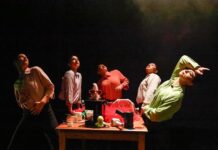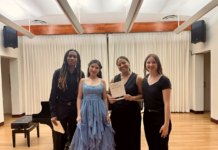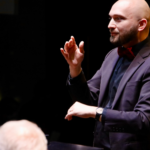Kaelyn Benoit and Lillie Schwier
The Southern Editors
When it comes to finding justice, sometimes a story can be someone’s last hope. Luckily, for Gilbert King, storytelling is what he does best.
After a successful career as a photographer, Gilbert King turned his attention to stories of the underdogs, immersing himself in civil rights cases rife with injustice. The more he learned, the more he realized that the lawyers were the underdogs, struggling to practice law in a time of deep oppression.
“This is such an American story that I couldn’t believe I didn’t know much about it,” King said, explaining his motivation. “And as I started looking into it, I started finding all these stories and a lot of them were happening in Florida.”
He noted that many civil injustice cases in Florida were historically overlooked because they weren’t in traditional Deep South states like Louisiana or Alabama.
“They were happening and they would make the newspapers and then kind of disappear. Scholars wouldn’t even write about it. It’s really a strange phenomenon.” King said.
King ended up writing three works examining legal cases that exposed racial injustice, including the Pulitzer Prize-winning Devil in the Grove, which focused on the 1949 Groveland Four case in Groveland County, Florida. King’s next story would remain in the area, taking him to the neighboring Polk County city of Lakeland to investigate a case from the 1980s.
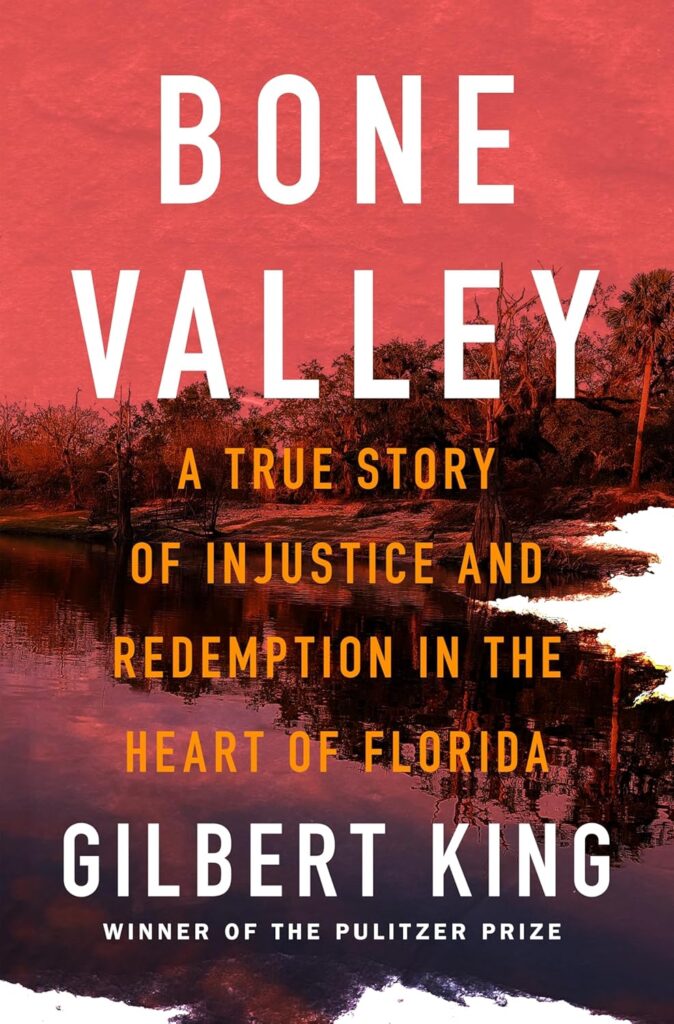
This case was that of Leo Schofield, a man out of options and out of chances for redemption, holding out hope that one day his rightful story would be told.
Leo and Michelle Schofield, ages 18 and 21, had only been married for 6 months when Michelle went missing. After days of looking, their red Mazda was found abandoned. Later, Leo’s father found her body in a location called “the cut,” a spot off of I-4 that was known as a hangout spot for teenagers. After a two-week trial with the very effective prosecutor, John Aguero and an ill-prepared attorney, Jack Edmund, Leo was convicted to life in prison without parole. For the next 36 years, he would continually try to prove his innocence.
“He did his best to try and defend himself. But sometimes it’s pretty daunting. And then once you’re convicted, you’re no longer innocent until proven guilty. You’re guilty and proven innocent.” King said.
After over 30 years in prison, Leo knew his legal options had run dry. What he truly needed was someone to believe him. First learning of Schofield’s story in 2018, King was approached by Judge Scott Cupp at a judicial convention. Handing King a business card, Judge Cupp had written three key pieces of information: Leo’s name, prison number and the words: “not just wrongfully convicted, he’s an innocent man.”
King initially hesitated to take the case, telling Cupp it would be years before he could start due to another ongoing case. Unsatisfied, Cupp pressed him, asking that he at least read the trial transcript. King did and that quickly revealed the urgent necessity of investigating the Schofield case. Schofield was stuck with very few options in regards to his case. Convicted and jailed at the time King first inquired about the story, Schofield had next to no hope left to prove his innocence to the world.
“I thought that was kind of tragic that all of his legal avenues were dead,” King said, “But a story could actually make a difference in his case. He just got swept up in the system and I just felt it wasn’t really working for him. He really needed a story.”
Now, seven years later, King has been able to bring Schofield’s story to light in the form of his award-winning podcast and book, “Bone Valley.” Listeners across the world have tuned in to learn more about Schofield’s story and have brought awareness to his situation.
While in prison, Leo met a woman by the name of Crissie, a social worker whom he worked with while pursuing his education. Over time, they fell in love and got married while Leo was still in prison. Crissie knew Leo was innocent and set out to learn more about the case.
Crissie would go to the Clerk of Court and learn about the case, and then go back to Leo and ask him questions. Over time, her friend, who ended up marrying Judge Scott Cupp, ran the fingerprints found inside Leo and Michelle’s Mazda, which had never been tested to see if they matched anyone other than Leo and his family. To Crissie’s surprise, they found the match in a man by the name of Jeremy Scott, who at the time of the murder lived in the same area as Leo and Michelle, about a mile and a half away from where Michelle’s body was found.
Jeremy had a long record of violence and was in prison for the murder of two men and was put on death row until the Florida Supreme Court pulled him off and put him in life in prison. Jeremy had a horrific childhood, one that both Leo and Gilbert would end up sympathizing with. Jeremy had grown up believing his grandmother was his biological mom, and at the age of nine years old, he became homeless.
Once the fingerprints were discovered, Jeremy was taken into prosecutor John Aguaro’s office, where they came to the conclusion that Jeremy’s fingerprints were found only because he attempted to steal the stereo. Leo was, therefore, denied a new trial in 2010. Jeremy later wrote a letter confessing to Michelle’s murder, which led to a 2017 evidentiary hearing. Despite confessing approximately 40 times during the hearing, an agitated and unmedicated Scott was shown a graphic autopsy photo by the new prosecutor and replied, “No, I didn’t do that.”
The one statement ended up costing Leo’s chance at parole.
“That one moment where it just sort of, no, I didn’t do that. That ended up being spun into the defense’s closing arguments, which were submitted in writing. And that got spun into ‘no, I didn’t do that’ meant ‘I didn’t kill Michelle.’” King said.
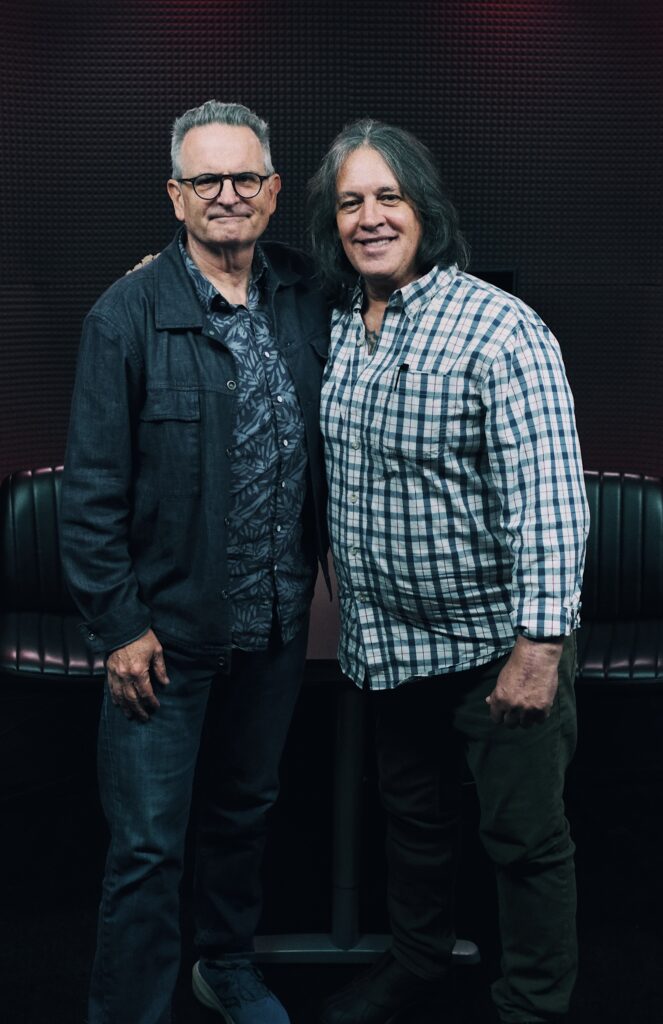
Gilbert King finally began working on Schofield’s case in the year following the hearing, and in April of 2024, two years after the debut of the Bone Valley Podcast, Leo was released on parole.Though Leo still has not been proven innocent in the eyes of the law, King is hopeful that he will one day get justice.
Throughout Leo’s entire 36 years of wrongful conviction, he never wavered from his innocence claim, despite being offered a plea deal that could have ensured his freedom in three years’ time. Schofield knew he was innocent.
“He was never going to take a plea, he was never going to admit to something he didn’t do,” King said.
Leo explained to King that his wish for redemption was not about himself, but rather about getting justice for Michelle, which is why he wanted nothing to do with a plea deal. He spent decades in prison because of the “principal,” as King describes, and during that time he never stopped finding it in himself to be forgiving and understanding.
“For me, this is a God story.” Schofield said, “This is not about me. This is about God in my story, in Michelle’s story. It’s a story of redemption. So when people get to the forgiveness part, they’re just blown away by that. They think that I’m some kind of saint. I’m telling you I’m not. It’s the power of God that allows me to forgive.”
FSC students, as well as the Lakeland community, had the chance to hear from both Gilbert King and Leo Schofield at the 2025 Florida Lecture series event on Sept. 25. This lecture exemplified that the story of Leo Schofield is not only one of injustice and true crime but a testament to humanity and the power of storytelling. Now, in the current day, Schofield is doing his best to reconnect with the world, be a husband to his wife, Crissie and 25-year-old daughter, Ashley. He credits Gilbert King’s podcast with bringing awareness to his case and letting him tell his story.
